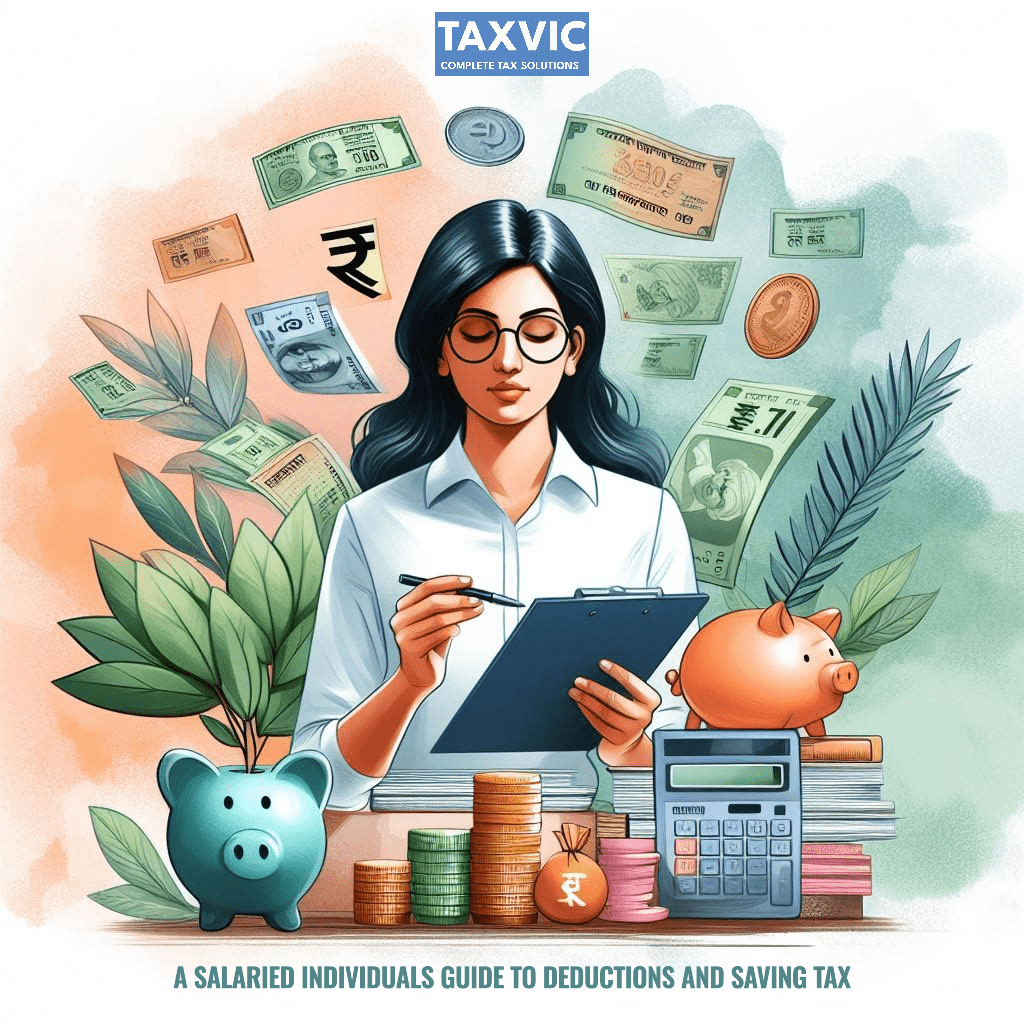
Salaried Individuals – Tax Saving
Filing taxes in India might seem daunting, but it can be an empowering experience for salaried individuals. Income tax deductions significantly reduce your tax burden, putting more money back in your pocket. By understanding these deductions, you can save a significant amount of your hard-earned money, which can be used for your financial goals. This knowledge empowers you to make informed financial decisions.
The Income Tax Act offers various sections specifically beneficial for salaried taxpayers. Let’s explore these provisions and unlock their potential for financial savings!
FAQs for Salaried Individuals on Tax Deductions and Saving Tax in FY 2024-25
Which tax regime should I choose, old or new?
The best tax regime for you depends on your income and potential deductions. Generally, the old regime offers more deductions (like HRA exemption) but has higher tax slabs. Meanwhile, the new regime provides lower tax slabs with minimal deductions. Analyse your income, deductions, and investments to make an informed decision. Consulting a tax advisor is recommended to understand the implications of these changes on your financial planning.
What are the popular investment options for tax saving under Section 80C?
ELSS Mutual Funds, PPF, NPS, and ULIPs (with a lock-in period) are common choices. ELSS offers high growth potential, PPF is safe with guaranteed returns, NPS is good for retirement planning, and ULIPs combine insurance and investment. When choosing, consider your risk tolerance and investment horizon.
Can I claim a deduction for rent paid even if I don’t get HRA from my employer?
Unfortunately, you cannot claim a deduction for rent paid without HRA from your employer. However, you can explore claiming allowances like conveyance allowance to reduce your taxable income.
How much can I claim a deduction for medical insurance premiums under Section 80D?
The deduction limits vary based on the age of the insured person. You can claim deductions for yourself, spouse, dependent children, and parents. The maximum deduction for taxpayers and parents over 60 is ₹1 lakh.
How can I claim the HRA exemption?
You can claim HRA exemption through your employer or by filing your Income Tax Return (ITR). The exemption amount depends on the least of your HRA received, rent paid minus 10% of your basic salary + DA, or a percentage of your salary based on your city.
Is there a deadline for claiming tax deductions?
Yes, there’s a deadline for filing your Income Tax Return (ITR) each year. The Income Tax Department announces the specific due date, typically in July or August.
What documents do I need to keep to claim tax deductions?
Maintain records of all investments, medical bills, rent receipts, and other relevant documents to support your claims while filing your ITR.
Can I claim a tax deduction for interest paid on a personal loan?
Tax deductions are generally not allowed for interest paid on personal loans. However, you can claim interest deductions paid on home, education, and electric vehicle loans under specific sections of the Income Tax Act.
Is there a limit on the deduction for interest earned on a savings account?
Yes, there’s a limit on the deduction you can claim under Section 80TTA for interest earned from your savings account. Consult a tax advisor for the current limit.
What if I’m unsure about claiming tax deductions or filing my ITR?
Consulting a registered tax professional is highly recommended. They can guide you through the process, ensure you maximise your deductions based on your situation, and help you file your ITR accurately.








вывод из запоя цена ростов вывод из запоя цена ростов .
купить диплом высшем образовании ростове russa-diploms.ru .
Купить диплом в Мичуринске
kyc-diplom.com/geography/michurinsk.html
Вопросы и ответы: можно ли быстро купить диплом старого образца?
Kane has consistently demonstrated top-level performance in the Premier League | The transfer of Harry Kane was one of the biggest in football history kane harry | The jersey number of Harry Kane has always been special to him | The Skechers cleats worn by Harry Kane have gained popularity among players | Harry Kane’s career statistics highlight his incredible achievements http://www.harry-kane.com.mx.
Great content. There are also related information about these topics and Music on https://mohammadtaherkhani.com for free to use.